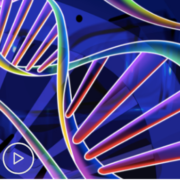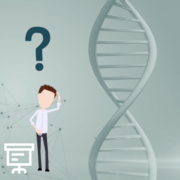Predictive (Familial) Genetic Testing vs. Cancer Genetic Testing: What’s the Difference?
Predictive (Familial) Genetic Testing vs. Cancer Genetic Testing: What’s the Difference? from Patient Empowerment Network on Vimeo.
Brittany DeGreef, a genetic counselor, explains the difference between hereditary genetic testing for cancer risk and genetic testing following a cancer diagnosis.
Brittany DeGreef is a Genetic Counselor at Robert H. Lurie Comprehensive Cancer Center of Northwestern University. More about this expert.
See More From the The Pro-Active AML Patient Toolkit
Related Resources
 Find Your Voice Resource Guide Find Your Voice Resource Guide |
 Key Genetic Testing After an AML Diagnosis Key Genetic Testing After an AML Diagnosis |
 Genetic Testing Explained Genetic Testing Explained |
Transcript:
My name is Brittany DeGreef and I am a licensed and certified genetic counselor and I work primarily in oncology genetics. At the Lurie Cancer Center, what I do is I provide comprehensive genetic counseling services for patients and families. Basically, what I do is take in family and personal history.
I help interpret what patterns we’re seeing in families. I provide risk assessment. Then we order and interpret genetic testing results. Based on those results, sometimes we make medical management recommendations for patients and families within a multi-disciplinary team within oncology at Northwestern.
The difference between predictive genetic testing and cancer genetic testing – let’s start with predictive genetic testing first. This means that we are testing someone who might be at risk for a specific hereditary condition, in particular, hereditary cancer syndromes.
In this case, what we’re doing is testing someone who is asymptomatic or does not have any signs of cancer at this point. What we’re trying to do is to identify if that person might be at high risk for specific cancers and implement certain screening strategies to risk reduction procedures and implement surveillance, if needed, if someone is at high risk for specific cancers.
When we think of cancer genetic testing, this person is likely already diagnosed with cancer and what we’re doing is trying to figure out if this person inherited something from either their mom or dad that placed them at a higher risk to get cancer in the first place.
In the past, this type of testing did not impact treatment strategies. But recently, this has been kind of the forefront of medicine where we are seeing patients who are just diagnosed with cancer and they are using genetic testing information to then incorporate that into their treatment approach.










